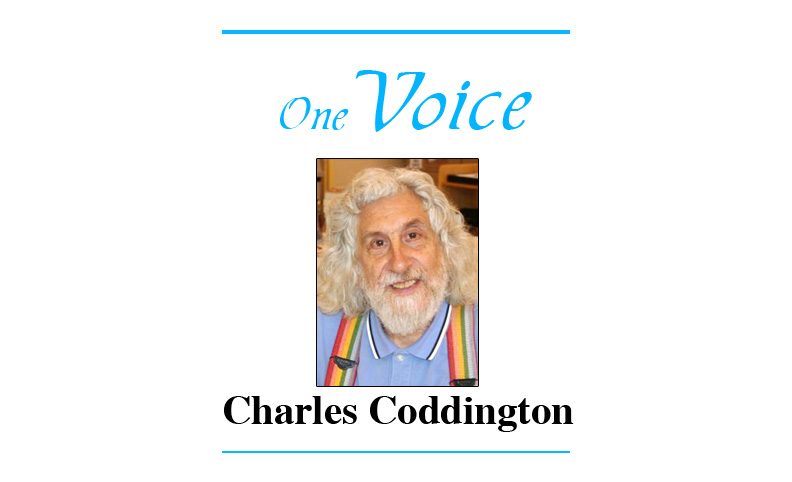
One constant in warfare is the cranking up of the propaganda machine to maximum capacity. Each side of the conflict must get its citizenry firmly behind its government’s viewpoint and actions; must be inundated, via newsprint and airways, with lots and lots of patriotic, emotion-laden messages delineating why war is necessary.
In the current conflict between Russia (the “aggressor”) and Ukraine (the “innocent victim”), the propaganda is flowing freely – not only from the participants but also from interested parties elsewhere in the world. Most of Europe sides with Ukraine; the lone exception is Hungary, whose leader is a Putin clone. The rest of the world could care less, unless trade with the combatants has been interrupted.
You may ask, dear reader, why The Chas has put quotation marks around “aggressor” and “innocent victim.” Has he mentioned that he is an historian by training and by advocacy? Yes, he has – dozens of times. And therefore, he is obliged to take a neutral stance on world events and to let the chips fall where they may.
One word in the barrage of propaganda which is used profusely is “unprovoked.” You see it and hear it, day in and day out. Hardly a war has been fought in the whole history of humankind in which this word has not been used by one side or another. “Unprovoked” is an important tool in order to rally the faithful behind their government; it is drummed into their minds lest the war effort collapses upon the instant. (Vietnam is a case in point.)
Putin’s invasion of Ukraine, we are told, was “unprovoked.” But, was it? So far, Ukraine’s viewpoint is the favored one; Russia’s is dismissed out of hand.
To be sure, Vladimir Putin, a.k.a. Vladimir I (the “Great”), Tsar of All the Russias, is a paranoid little pipsqueak with delusions of grandeur. As such, he finds “provocations” behind every tree and bush, and he is obliged to counter them however he can, lest he finds himself facing a firing squad.
Let us then, dear reader, look at the recent history of Eastern Europe.
During World War II, the Western powers allied themselves with the Soviet Union in order to defeat Nazi Germany. It was a marriage of convenience, and they quickly “divorced” as soon as the hostilities had concluded. The whole of Eastern Europe, however, was occupied by Russian troops; the dictator, Joseph Stalin, formed the Warsaw Pact out of the occupied countries in order to counter any Western influence in the region. To prevent any moves by Moscow to influence Western Europe, the Western powers created the North Atlantic Treaty Organization (NATO, strictly a military alliance, in 1946. A cold war began and colored European politics for next forty-plus years.
Following Moscow’s failed attempt at regime change in Afghanistan in 1989, the Russian economy nosedived and triggered the collapse of the Soviet Union. All the pieces of Russian hegemony in the Warsaw Pact opted to become independent republics. NATO should have been dissolved as its raison d’etrehad lost its foundation; but it wasn’t, because the Western powers feared that the Russian bear might revive itself and become a menace again. Thus, NATO was seen as a buffer against this possibility, and the West sought closer relations with Eastern European countries.
For the next 30 years, trade between East and West flourished, so much so that the West was moved to invite the East to join NATO. Most did, with Hungary the exception, especially when Vladimir Putin, an ex-colonel of the KGB, rose to power and began to dream of restoring the Russian Empire of the Romanovs. He soon found the old enemy parked on his doorstep, and he warned the West against these provocations which threatened Russian sovereignty. The United States responded by setting up military bases in the East and supplying it with military equipment.
One does not provide paranoid little pipsqueaks with more fuel for their paranoia without consequence, especially when one is paranoid himself. To be sure, Putin is a war criminal in the fullest sense of the expression and ought to stand before the bar in the International Criminal Court at The Hague. But, his rise to power in the first place and the renewal of the Cold War between the United States and Russia could have been avoided had the West propped up democratic elements in the latter post-1989 instead of wallowing in political gamesmanship.
We should not have listened to the war hawks inside and outside of Washington, D.C. because they beat the war drums (all the while enriching themselves). We should not have allowed military budgets balloon out of all proportion to the detriment of domestic concerns. Having done so, however, we now see a once-thriving country in ruins and hundreds of thousands of people homeless or dead.
It is the price of paranoid policies.
Just a thought.

